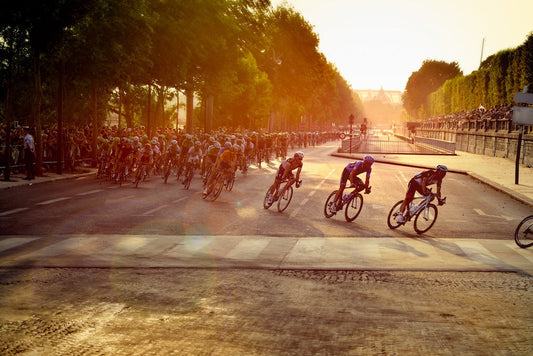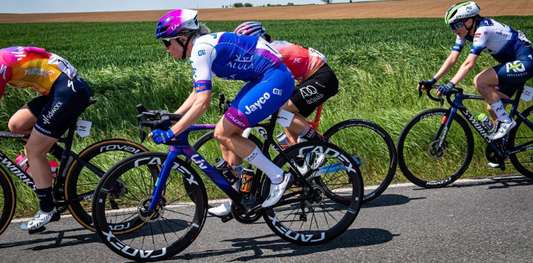Fueling Your Way to the Finish Line: The Ultimate Guide to Marathon Nutrition
This article is a must-read for marathon runners who want to improve their performance. Discover the importance of proper nutrition practices and learn tips to develop a plan that helps you finish strong. We've got you covered from pre-marathon carb-loading to trialling fuel options during training. Don't miss out on the ultimate guide to marathon nutrition!

Nutrition for Marathon runners
Running a marathon involves a lot more than simply getting km’s into the legs. Following a training program to prepare your body to run the distance is extremely important. However, there is often an aspect that a lot of recreational athletes forget about. Nutrition and hydration.
The Importance of Nutrition and Hydration
Training with adequate nutrition and hydration practices is essential to ensuring you can manage the training load, train your gut and know what you can tolerate during the event, recover optimally, manage injury risk, and most importantly, perform at your best. Too often, people don’t have a plan in place for their food and hydration strategies during training or during the marathon. This can lead to not finishing the event, failing to achieve your goals in regard to pace or increasing illness and injury risk. These can all be avoided through proper nutrition and hydration practices.
Pre-Marathon Nutrition
Food is extremely important for performance during a marathon. In the 24-36 hours leading into the event, it is important to follow some carbohydrate loading. This ensures the body's glycogen stores are completely full, and the body will have sufficient energy to begin the event. Reducing fibre and fat content is also important in the days leading in to avoid any gastrointestinal upset and increased toilet stops during the event.

Fuelling during the Event
Fuel to be used during the event should always be trialled in training first to avoid any GI discomfort or surprises on the day. Always carry options with you, and don’t rely on aid stations to get you through. The amount of carbohydrates (glucose) required per hour for fuel depends on how long the event will take. Usually, between 30-90g of per hour will suffice. This can be split up in numerous ways during the hour and should again be trialled during training.
Sticking to a Plan
Sticking to a plan is important to ensure you don’t fall behind with your food intake. It can be very easy to forget or become distracted and not take on any food. Running out of energy can cause you to ‘hit the wall’. This is when an athlete has a sudden loss of energy and simply cannot keep going. Sometimes putting additional fuel in at this time can allow you to continue in the event. Eating regularly and following a plan with your food intake can prevent this from happening.

The Importance of Hydration
Hydration is the other important piece of the puzzle. Once you fall behind with your hydration, it can be very hard to catch up. Performance is impacted when you’re dehydrated by as little as 2%. This results in increased use of glycogen stores, an increased core body temperature, increased stroke volume and decreased blood volume. This all leads to the body having to work extra hard to do the same amount of work leading to extreme fatigue that can be very hard to come back from.
Electrolytes and Fluids
Electrolytes such as sodium and potassium are important to replace during a marathon. However, adequate fluid is essential to prevent dehydration. As a general rule, insufficient water consumed is the most common cause of dehydration.
The Benefits of PREPD Prime
Having a plan in place regarding hydration throughout a marathon is essential to ensure, number one, you complete the marathon, and number two, you achieve your goals in relation to pace, time and place. PREPD Prime can be used 10-18 hours prior to the start of your long training session or marathon event. The sustained fibre formula acts as a hydration booster in the gut and allows your body to absorb more fluid than it otherwise normally would. This can help you to maintain your hydration during the marathon, accompanied by an appropriate hydration plan. The amount of fluid required for each individual will differ based on numerous factors, including sweat rate, the environment and tolerance.
The Need for a Food and Fluid Plan
If you are preparing to run a marathon, ensure you have food and hydration practices in place. If you fail to prepare, prepare to fail. Training with food and fluid is extremely important to assess your tolerance as well as optimise your performance. During the event, it is essential to stick to a plan when it comes to your food and fluid intake to ensure you can finish and compete at your best.



